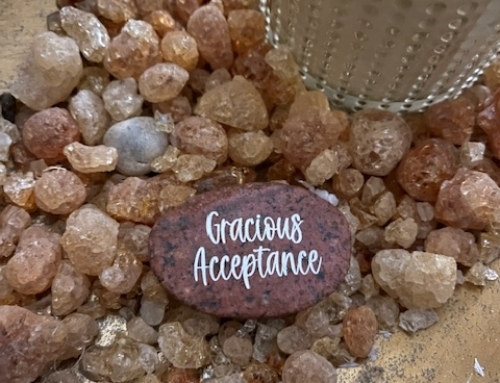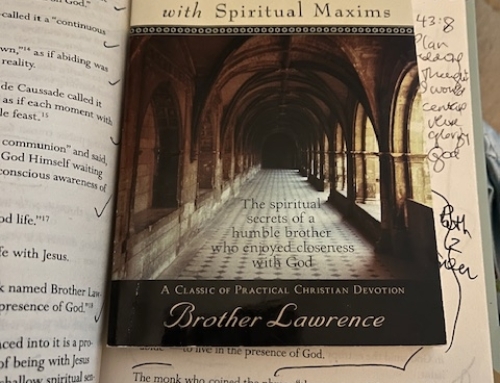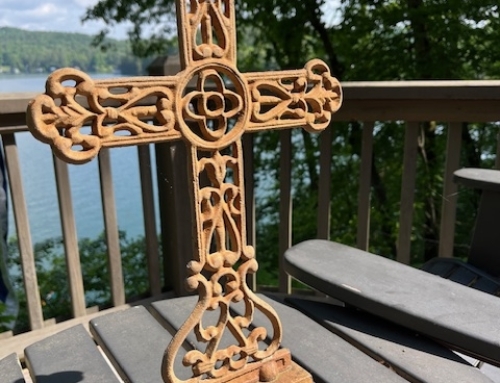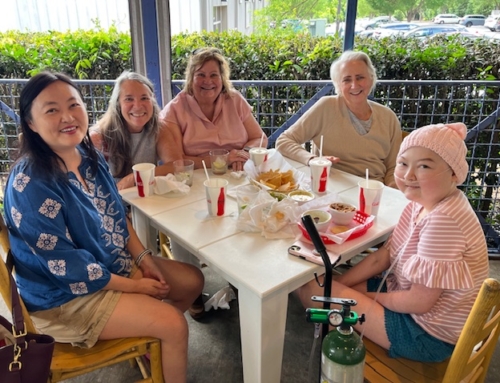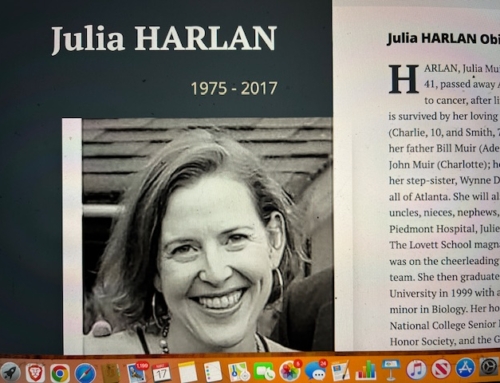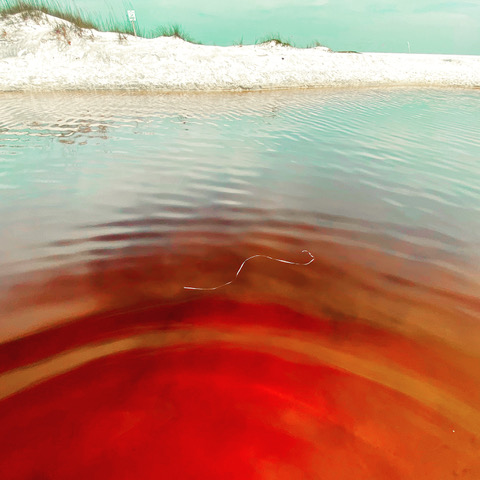
Good morning…
“I don’t see color,” a long-time friend said over dinner the other night. I think she meant, “I take people as they are. I don’t judge any person by the color of their skin. My diverse relationships are more than skin-deep.” Growing up, when we said, “I don’t see color,” we thought we were being non-judgmental, accepting to all, open to friendship regardless of race.
Yet, from the reading and the listening and the discussions we are having about systemic racism and implicit bias, I am learning that the phrase “I don’t see color,” is hurtful to people of color. On a deeper level, this phrase is really saying, “If I don’t see color, I don’t really see you. I don’t seek to understand the struggles you encounter because of your skin color. I am not interesting in learning how I may be silently contributing to the injustices you are enduring.”
I am beginning to engage this phrase with growing awareness. Atlanta artist Danielle Coke helps to open my eyes.

Enlightening authors help me too. Like Dolly Chugh who writes:
“America is not always the country it means to be. To tell the truth, I am not always the person I mean to be, either. Yes, like you, I am a believer in the American values of equality and equity, diversity and inclusion, the values underlying the founding of this country and many major spiritual teachings. Race, religion, ethnicity, sexual orientation, gender, gender identity, ability – I believe bias of all forms is wrong. I am a believer.
Still, the person I mean to be is more than just a believer. The person I mean to be stands up for those values. The person I mean to be fights bias. Sometimes, I do. Sometimes, I don’t. Sometimes, I don’t notice bias and am surprised or defensive when others point it out. Sometimes, I – the one who studies bias for a living – am the problem. …I mean to do better. As a believer in these values, I need to do better” (The Person You Mean to Be: How Good People Fight Bias, xviii-xix).
I think, “How much do I limit the unlimited love of God, growing in and flowing through me, due to human categories: race, religion, ethnicity, sexual orientation, gender, gender identity, and worldly ability?” We are not only designed to be believers in these values, we are designed by God to Be the Bridge, as indicated by the title of Latasha Morrison’s national best seller. Her book’s subtitle defines our common purpose: Pursuing God’s Heart for Racial Reconciliation. Latasha writes in the final pages of her book:
“Bridges are built not with passivity or avoidance but with the deep, hard work of seeking to understand. The deep, hard work of fighting for justice for all. Love is always a fight worth taking on. I know because in my own life I have seen it and continue to fight for it to be true.
Jesus Christ showed us the way to love and live – and it was shocking: he chose to lay down his power and privilege and, in the end, his life for the good of others. He isn’t just our Savior; he is our example.”
Jesus knew that the Father had put all things under his power, and that he had come from God and was returning to God; so he got up from the meal, took off his outer clothing, and wrapped a towel around his waist. After that, he poured water into a basin and began to wash his disciples’ feet, drying them with the towel that was wrapped around him.
When he had finished washing their feet, he put on his clothes and returned to his place. “Do you understand what I have done for you?” he asked them. “You call me ‘Teacher’ and ‘Lord,’ and rightly so, for that is what I am. Now that I, your Lord and Teacher, have washed your feet, you also should wash one another’s feet. I have set you an example that you should do as I have done for you (John 13:3-5, 12-15, NIV).
Might we also get up, kneel down, and symbolically wash one another’s feet? As we humbly engaged in real reconciliation, following the example set by Jesus, we tenderly love others with the unconditional love of our Father, just our Lord and Teacher loves us.
…Sue…
P.S. If you are interested in learning more about how we, the living and loving body of Christ, can be a bridge in these tumultuous times, please join me and several others in our community for a webinar this Tuesday, the 15th, from 2:00 to 3:30 pm. In this webinar with author Kerry Connelly, leadership and adult study groups can begin the important work of dismantling racism as a church and finding justice for our Black brothers and sisters in Christ. Participants do not need to have read Kerry’s book, Good White Racist? Confronting Your Role in Racial Injustice, to attend.
P.S.S. Thank you, Corinne Adams, for these peaceful, colorful photos.


